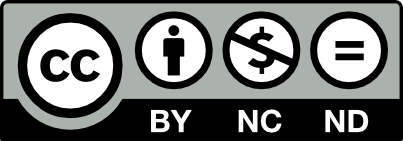Relationships between leaders, capital, and knowledge
Fragment książki (Rozdział monografii pokonferencyjnej)
MNiSW
5
spoza wykazu
| Status: | |
| Autorzy: | Rzepka Agnieszka, Witkowski Jacek |
| Dyscypliny: | |
| Aby zobaczyć szczegóły należy się zalogować. | |
| Wersja dokumentu: | Elektroniczna |
| Język: | angielski |
| Strony: | 1165 - 1172 |
| Bazy: | Compendex (EI) | Institution of Engineering and Technology in the UK | Google Books | EBSCO | Australian Research Council ERA Confernce List | Norwegian Register for Scientific Journals |
| Efekt badań statutowych | NIE |
| Materiał konferencyjny: | TAK |
| Nazwa konferencji: | 24th European Conference on Knowledge Management |
| Skrócona nazwa konferencji: | ECKM 2023 |
| URL serii konferencji: | LINK |
| Termin konferencji: | 7 września 2023 do 8 września 2023 |
| Miasto konferencji: | Lizbona |
| Państwo konferencji: | PORTUGALIA |
| Publikacja OA: | TAK |
| Licencja: | |
| Sposób udostępnienia: | Witryna wydawcy |
| Wersja tekstu: | Ostateczna wersja opublikowana |
| Czas opublikowania: | W momencie opublikowania |
| Data opublikowania w OA: | 5 września 2023 |
| Abstrakty: | angielski |
| Intellectual capital describes the knowledge resources that a company can use to reap advantages (Muslih, 2021). While human capital is frequently associated with organizational capital (Beltramino, 2020), it is also important to emphasize the role of humans in generating intellectual capital (Dessein& Pratt, 2022; Ozgun, 2022). Interactions between employees within the organization or between its employees and their larger context are crucial. Such relationships have been described as "relational capital" (Zhang, 2022). By one definition, leadership is the ability to influence people to achieve organizational goals (Daft, 2014). There is increasing recognition, however, that traditional leadership models are insufficient to face the challenges of a modern, turbulent world and must be transformed (Brennan, 2022). This article examines the intricate relationship between leaders, capital, and knowledge within a business environment. It uncovers how agile leaders foster a specific atmosphere of creativity and responsiveness while enabling organizations to seize opportunities and confidently tackle challenges. Lastly, it highlights the tangible benefits of an agile leadership approach. |

